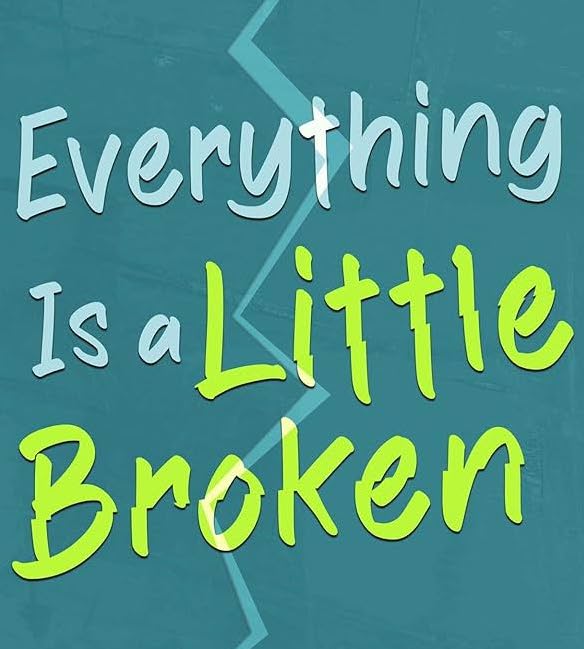‘Everything Is a Little Broken’ Tells of Life’s Challenges With Honesty — and a Helping of Grace
The debut novel from Sun columnist Rebecca Sugar is an unflinching look at what holds together when things fall apart.

‘Everything Is a Little Broken’
By Rebecca Sugar
Post Hill Press, 192 Pages
The new novel, “Everything Is a Little Bit Broken,” from Sun columnist Rebecca Sugar, is a welcome reminder that fiction can indeed hew to its mandate to describe, with empathy, the strangeness of being human. Mrs. Sugar, our Cocktail Party Contrarian, here trains her keyboard on a milieu she knows — Manhattan’s Upper East Side. There live the Franks and their 79-year-old patriarch, Matthew. He’s King Lear with a Jewish sense of humor.
Mrs. Sugar’s narrator is Matthew’s daughter, Mira. She’s devoted to her ailing father — his body is a ruin collapsing in slow motion — and her somewhat remote mother, Dana. She does her best with a wayward brother, Daniel, whose orbit has taken him far from the family entanglements that bind Mira. For most of the book, Mira also cares for Mae, an aged devotee of the Gospel and the Mets who has cared for generations of Franks. She is the book’s hero.
Mira is herself married to Aaron, a genial presence who does what he can, though he is often working. Their daughter, Lilly, is home from college and appears to exhibit not a trace of rebellion — on the contrary, she is in the midst of a modest religious revival and drags her family to synagogue, if not against their will than contrary to their inclination. Apart from the shadow of scandal around Daniel, there is little darkness here. Everyone is doing his best.

“Everything Is a Little Broken” really hums when it spotlights the relationship between Mira and Matthew, who suffers “atrophy, neuropathy, knee replacements, and deteriorating discs until his physical limitations far outweighed his activities and reordered his world.” Mira senses a “new kind of vulnerability” in her father, and responds to it with a summoning of tenacious kindness. Riveting depictions of fathers and daughters are rare in fiction. This is one.
Mira also serves as the repository of her family’s relationship with Mae, a kind of surrogate mother and spiritual lodestar, bonds described as “relics of another world, the sort that were fading into history and would never be again.” The journey to Mae’s Brooklyn residence from the Franks’ Manhattan redoubt is also a crossing of class, religion, and race. In this book about family, Ms. Sugar allows ample space for tribes formed not by blood, but time and intimacy.
Mrs. Sugar’s book is astute when it comes to the frustrations and litany of indignities that accompany disability. Matthew’s pride continually crashes on the shoals of his physical infirmities. Each trip to the car is an adventure, with all of the anxiety and little of the excitement. A particularly arresting scene transpires at a Thanksgiving meal, where Matthew takes a tumble and it feels as if more than just a ravaged body is sprawled on the floor.
While Mrs. Sugar’s focus is tightly drawn around the Frank family, “Everything Is a Little Broken” gestures toward the ailments of not only an aging body, but also those of the body politic. Mira captures New York City’s roiling crime and disorder, though frequently via her peripheral vision. The book ends with a religious experience, and seems to remind that religion could provide ballast against human frailty. In its own gentle way, so does this novel.

